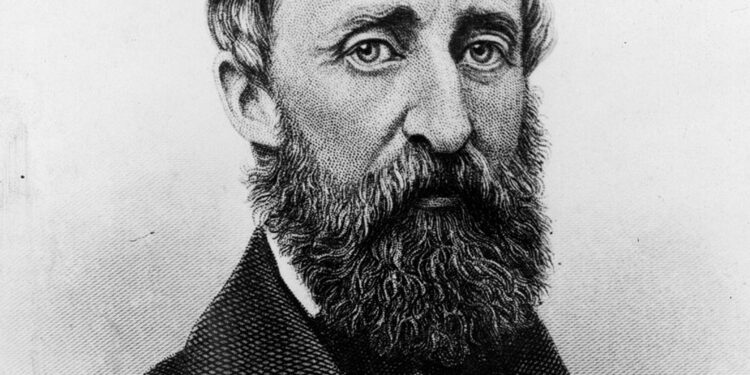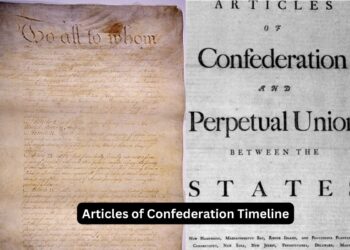“Where I Lived, and What I Lived For” is an essay written by Henry David Thoreau, first published in 1854 as part of his book “Walden.” Thoreau was an American philosopher, naturalist, and transcendentalist who spent two years living in a small cabin near Walden Pond, Massachusetts.
Where I Lived, and What I Lived For Essay By Thoreau-The essay explores Thoreau’s experiences and reflections during his time in the cabin, where he sought a simpler and more meaningful existence. Thoreau emphasizes the importance of living deliberately, rejecting the distractions of modern society, and reconnecting with nature.
In the essay, Thoreau describes his decision to live a solitary life in the woods, where he could have a direct and unmediated experience with nature. He reflects on the tranquility and beauty of the natural world, finding solace in the simplicity and harmony he observes.
Also Read-
- The Superannuated Man Essay Summary By Charles Lamb
- On Going a Journey Essay Summary By William Hazlitt
- Areopagitica Essay Summary By John Milton
- The Anatomy of Melancholy Essay Summary By Robert Burton
Where I Lived, and What I Lived For Essay By Thoreau-Thoreau also contemplates the concept of material possessions and their role in human life. He argues that people often become enslaved to their possessions, spending their time and energy acquiring and maintaining them. Thoreau advocates for a more minimalistic lifestyle, free from unnecessary belongings and focused on spiritual and intellectual growth.
Furthermore, Thoreau questions the values and pursuits of society, criticizing the pursuit of wealth, social status, and conformity. He encourages individuals to discover their own purpose and meaning in life, rather than blindly following societal expectations.
Where I Lived, and What I Lived For Essay By Thoreau-The essay concludes with Thoreau’s belief in the importance of self-reliance and self-discovery. He suggests that by simplifying our lives and connecting with nature, we can gain a deeper understanding of ourselves and find true fulfillment.
“Where I Lived, and What I Lived For” is a philosophical exploration of the relationship between humans and nature, the pursuit of a meaningful existence, and the importance of individuality and self-discovery. It continues to be celebrated as a classic work of American literature and an influential piece in the field of environmental philosophy.
About Henry David Thoreau
Where I Lived, and What I Lived For Essay By Thoreau-Henry David Thoreau was an American philosopher, essayist, poet, and naturalist who lived from 1817 to 1862. He is widely regarded as one of the most influential figures in American literature and a leading voice of the transcendentalist movement. Thoreau’s writings and ideas continue to inspire readers and thinkers to this day, and his work remains a cornerstone of environmental philosophy.
Thoreau was born on July 12, 1817, in Concord, Massachusetts, to John Thoreau, a pencil manufacturer, and Cynthia Dunbar. From a young age, Thoreau showed a deep connection with nature and a strong sense of individualism. He attended Harvard University, where he studied classics and philosophy. During his time at Harvard, he became friends with Ralph Waldo Emerson, a prominent transcendentalist thinker, who would have a significant influence on Thoreau’s life and work.
Where I Lived, and What I Lived For Essay By Thoreau-After graduating from Harvard in 1837, Thoreau briefly worked as a schoolteacher but soon decided to pursue a different path. He and his brother John opened a school in Concord, but the venture lasted only a few years. Thoreau then turned to his true passions: writing and nature. He embarked on a period of intense self-study and exploration, delving into various philosophical and literary works while spending significant time in the natural world.
In 1845, at the age of 27, Thoreau built a small cabin near Walden Pond, a serene and secluded spot in Concord. This experience would become the inspiration for his most famous work, “Walden.” For two years, Thoreau lived a simple and solitary life in the cabin, immersing himself in nature and reflecting deeply on the human experience. He aimed to live deliberately, intentionally simplifying his life and questioning the values and pursuits of society.
Where I Lived, and What I Lived For Essay By Thoreau-“Walden” was published in 1854 and remains Thoreau’s most renowned book. It describes his time at Walden Pond, providing vivid descriptions of the natural surroundings and offering philosophical musings on topics such as individualism, self-reliance, and the significance of nature in human life. Thoreau’s observations and insights in “Walden” continue to resonate with readers, inspiring a sense of connection with the natural world and prompting reflection on the pursuit of a meaningful existence.
In addition to “Walden,” Thoreau is known for his essay “Civil Disobedience,” which was published in 1849. In this essay, Thoreau argues for the importance of individual conscience and resistance against unjust laws. He famously refused to pay a poll tax as an act of protest against the Mexican-American War and slavery, leading to his arrest and a brief imprisonment. Thoreau’s ideas on civil disobedience would later influence significant figures like Mahatma Gandhi and Martin Luther King Jr.
Where I Lived, and What I Lived For Essay By Thoreau-Thoreau’s writings often celebrate the beauty and harmony of nature while critiquing the materialistic and conformist tendencies of society. He believed that modern life had become too complex and detached from the natural world, and he called for a return to simplicity, self-reliance, and a deep connection with nature. Thoreau sought to inspire individuals to live intentionally, to question societal norms, and to seek their own path to fulfillment.
Beyond his writing, Thoreau was also an avid naturalist. He meticulously observed and recorded the flora and fauna of the Concord area and maintained detailed journals. His observations of the changing seasons, the behavior of animals, and the intricate patterns of nature enriched his writings and contributed to a broader understanding of the natural world.
Conclusion
“Where I Lived, and What I Lived For” by Henry David Thoreau is a profound essay that encourages individuals to seek a simpler and more deliberate way of life. Thoreau’s experience living in solitude near Walden Pond serves as a backdrop for his reflections on the importance of connecting with nature, rejecting materialism, and questioning societal expectations.
Where I Lived, and What I Lived For Essay By Thoreau-Thoreau’s call to live deliberately and to explore the depths of one’s own existence resonates with readers, urging them to examine their own lives and values. He challenges the pursuit of wealth, status, and conformity, suggesting that true fulfillment comes from living in harmony with nature, finding one’s purpose, and embracing self-reliance.
Through his vivid descriptions of the natural world and his introspective musings, Thoreau invites readers to contemplate their own relationship with nature and the choices they make in their daily lives. He reminds us of the beauty and tranquility that can be found in simplicity and the need to disconnect from the distractions of modern society.
Where I Lived, and What I Lived For Essay By Thoreau-“Where I Lived, and What I Lived For” continues to be revered as a timeless piece of literature that inspires readers to seek meaning and purpose in their lives, to cultivate a deeper connection with nature, and to live authentically and intentionally. Thoreau’s insights and ideas have had a lasting impact on environmental philosophy and continue to resonate with those who strive for a more meaningful existence.
FAQ.
Q: Who is Henry David Thoreau?
A: Henry David Thoreau (1817-1862) was an American philosopher, essayist, poet, and naturalist. He is best known for his book “Walden,” which describes his experience living in a cabin near Walden Pond and reflects on themes of simplicity, self-reliance, and the relationship between humans and nature. Thoreau was also a leading figure in the transcendentalist movement, which emphasized individualism, intuition, and a deep connection with nature.
Q: What is the transcendentalist movement?
A: The transcendentalist movement was a philosophical and literary movement that emerged in the mid-19th century in the United States. Transcendentalists, including Henry David Thoreau, Ralph Waldo Emerson, and Margaret Fuller, believed in the inherent goodness of humans and the importance of intuition, self-reliance, and a close relationship with nature. They rejected societal conventions and emphasized individualism, spiritual exploration, and the quest for truth and meaning.
Q: What is “Walden”?
A: “Walden” is a book written by Henry David Thoreau, published in 1854. It chronicles Thoreau’s experiences and reflections during his two-year stay in a small cabin near Walden Pond, Massachusetts. “Walden” explores themes of simplicity, self-sufficiency, and the pursuit of a meaningful existence. Thoreau’s observations of nature and his contemplations on society and the human condition make “Walden” a classic work of American literature and an influential text in environmental philosophy.
Q: What is the main message of “Where I Lived, and What I Lived For”?
A: The main message of “Where I Lived, and What I Lived For” is to encourage individuals to live deliberately, reconnect with nature, and question societal expectations. Thoreau advocates for a simpler, more meaningful way of life, free from materialism and conformity. He emphasizes the importance of self-discovery, self-reliance, and finding one’s own purpose. The essay serves as a call to examine one’s values, embrace simplicity, and seek fulfillment through a deeper connection with nature and a more authentic existence.
Q: What is the significance of “Where I Lived, and What I Lived For”?
A: “Where I Lived, and What I Lived For” is a significant essay in American literature and environmental philosophy. It exemplifies the transcendentalist ideals of self-reliance, individualism, and the appreciation of nature. Thoreau’s reflections on the human-nature relationship and his critique of materialism and societal norms continue to resonate with readers, inspiring them to question their own lives and values. The essay has had a lasting impact on discussions of simplicity, sustainability, and the pursuit of a meaningful existence.
















